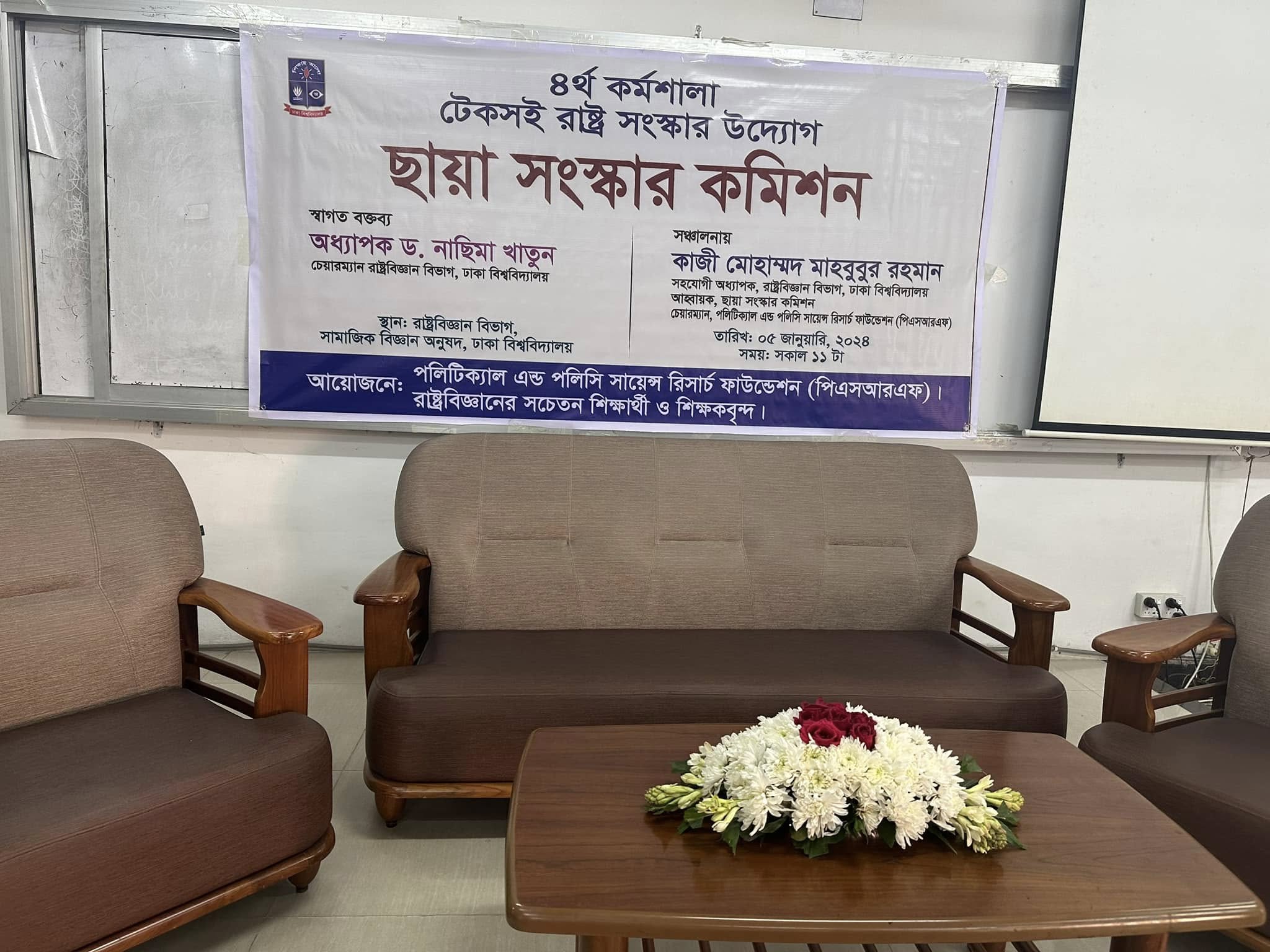
Convener of the Shadow Reform Commission
The interim government formed under the leadership of Nobel laureate Dr. Mohammad Yunus, after the downfall of an authoritarian regime in Bangladesh responded to the burgeoning demands for state reforms by establishing 11 commissions. The government also declares its plan to form a National Consensus Commission with 7 earliest commissions. However, it is important to recognize that the current commissions’ formation exhibits the limited reflection of core political science approaches, which are crucial for the functioning of a robust political system. The commissions are working separately that reflects the inadequacy of coordination and integration to achieve sustainable state reforms strategies from comprehensive perspectives. These commissions also currently lack a strategic plan for monitoring the implementation of their recommendations and for advocating the necessary policy support to effectively tackle future crises. To address this significant gap, a group of committed political science students and educators launched an ambitious initiative to create 11 Shadow Reform Commissions in August 2024 that started to work together and develop state reforms proposals in an integrated way. With five workshops and a national conference planned, this effort aims to foster momentum and gather collective insights. Surveys and focus group discussions will be conducted to capture a diverse range of opinions from the public and expert stakeholders, helping to refine the final proposal following the fifth workshop. In the short term, these Shadow Reform Commissions are prepared to present their well-researched policy proposals at a prominent press conference and submit them to the interim government and the National Consensus Commission. They will not only monitor the progress of reform implementation but will also commit to continuously developing informed policy recommendations for future governments and stakeholders, addressing a variety of critical state issues. This initiative represents a proactive step towards meaningful change and lasting improvement in Bangladesh’s political landscape. The July-August 2024 student-led revolution and the formation of interim government led by Nobel Laureate Dr Muhammad Yunus are seen as a beacon of hope due to his global reputation for peace and social justice. To manage high expectations, it is crucial for the government not only to prioritize and address fundamental issues, such as law and order, economic stability, and human security but also bring long aspired changes and reforms that establish a new political order capable of ensuring good governance, democratic politics, and civil liberties that would lay a solid foundation for a stable and democratic state. Without a clear priorities and robust framework for the sustained and rigorous political and state reforms, the government may face intense pressure from various groups, including contested political parties, pressure groups, and civil society organizations, which has already been evident in recent protests and demonstrations. If the issues of the restoration of a new democratic order are not addressed, it may jeopardize the process of democratic transitions. Therefore, the Shadow Reforms Commission formation initiative aims to present a rigorous reforms proposal to the Interim Government or proposed National Consensus Commission (the united commission consisting of 7 earliest commissions) that will continue until the state reforms are implemented by the future successive governments, establishing a robust foundation for effective governance in Bangladesh.

Convener
Jan 11, 2025The interim government formed under the leadership of Nobel laureate Dr. Mohammad Yunus, after the downfall of an authoritarian regime in Bangladesh responded to the burgeoning demands for state reforms by establishing 11 commissions. The government also declares its plan to form...
Read More...